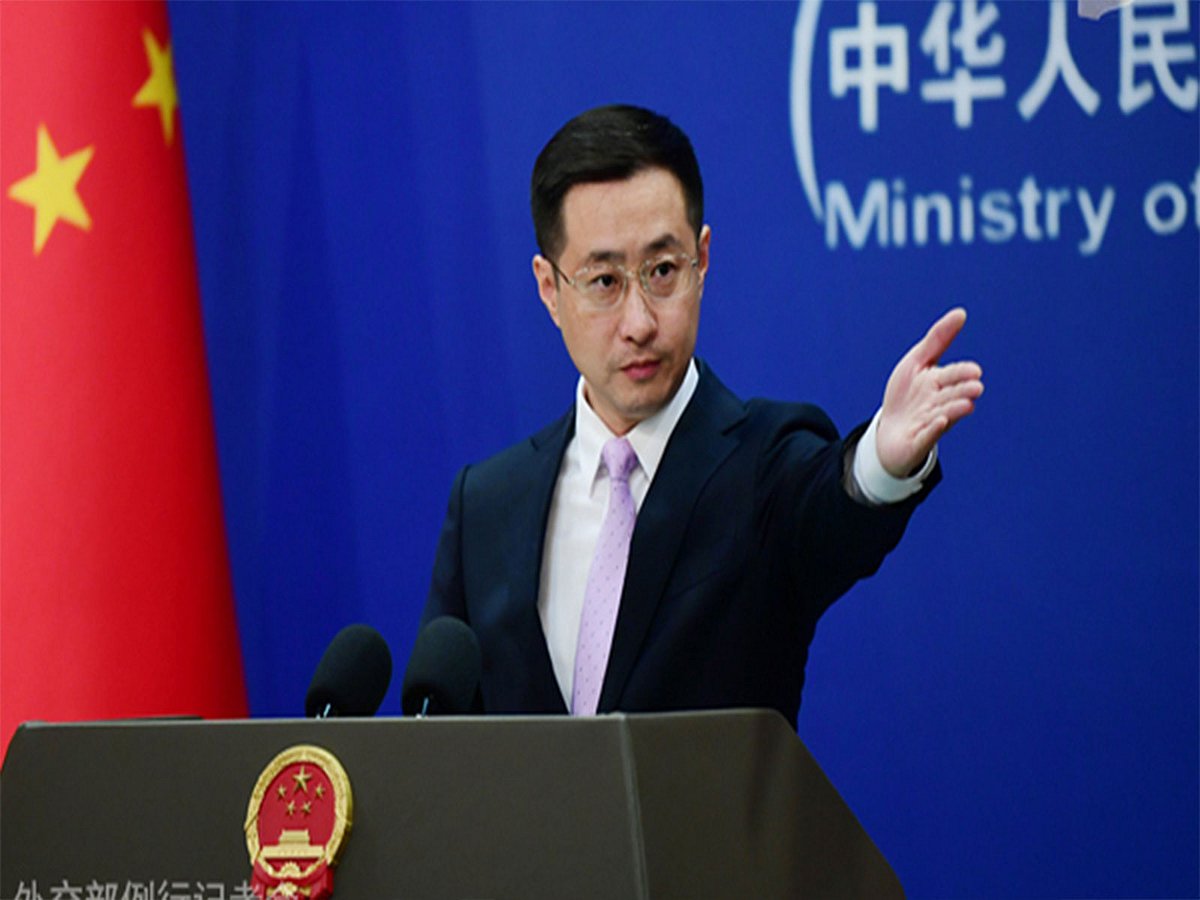China Rejects US Sanctions, Calls for Dialogue
In a recent escalation of tensions, China has categorically rejected the latest sanctions imposed by the United States, asserting its commitment to protect its legitimate rights and interests. The Chinese government is calling for a resolution through dialogue rather than confrontation, highlighting the importance of mutual respect and equality in bilateral relations.
China’s Stance on US Sanctions
Chinese Foreign Ministry spokesperson Lin Jian expressed strong disapproval of the US sanctions, stating that China will take necessary measures to defend its rights. In a statement shared on social media platform X, Lin emphasized the need for the US to reassess its approach and engage in constructive dialogue to resolve differences.
Lin remarked, “Threatening high tariffs is not the right way to deal with China,” urging Washington to adhere to the common understandings reached during recent communications between the two nations’ leaders. He reiterated that both sides should work towards managing their concerns through respectful dialogue, aiming for a stable and sustainable relationship.
Recent Developments in US-China Relations
The tensions between the two countries have escalated following US President Donald Trump’s threats to impose new tariffs on Chinese imports, which could reach as high as 100%. This warning came shortly after China announced export restrictions on rare earth minerals, a move that has further strained trade relations and threatened ongoing negotiations.
In response to the US’s aggressive stance, a spokesperson from China’s Ministry of Commerce stated, “Resorting to threats of high tariffs is not the right way to engage with China.” The spokesperson also emphasized that while China does not desire a tariff war, it is prepared to take decisive action if the US continues its unilateral approach.
Impact on Global Markets
The rapid escalation of this trade dispute has sent shockwaves through global markets, leading to a decline in stock prices and reigniting fears of a repeat of the previous tariff war. Earlier this year, tariffs on imports between the two nations soared dramatically, with rates reaching approximately 145% for Chinese goods and 120% for American products.
The ongoing tensions have also cast uncertainty over an upcoming meeting between President Trump and Chinese President Xi Jinping, which is scheduled to take place in South Korea in the coming weeks. Trump’s recent comments regarding the rare earths issue have raised doubts about whether this crucial meeting will proceed as planned.
FAQs
What are the recent US sanctions against China?
The recent US sanctions involve threats of imposing high tariffs on Chinese imports, which have been met with strong opposition from China, asserting that such measures are not conducive to resolving trade issues.
How has China responded to the US sanctions?
China has firmly rejected the sanctions and vowed to take necessary measures to protect its rights, emphasizing the importance of dialogue and mutual respect in addressing differences.
What are rare earth minerals, and why are they significant?
Rare earth minerals are essential components in various high-tech products, including electronics and renewable energy technologies. Their trade has become a focal point in US-China relations, especially following China’s recent export restrictions.
Conclusion
The ongoing tensions between the US and China highlight the complexities of their trade relationship, with both nations standing firm in their positions. As the situation develops, it remains crucial for both sides to engage in dialogue to prevent further escalation and to seek a resolution that benefits both economies. The upcoming meeting between the two leaders could be pivotal in determining the future of their bilateral ties.
The backdrop of these tensions is rooted in a broader context of economic competition and geopolitical rivalry between the two nations. The United States has expressed concerns over China’s trade practices, intellectual property theft, and state subsidies, which it views as unfair advantages in the global market. Conversely, China perceives the US sanctions as an infringement on its sovereignty and economic development, further complicating the path to resolution.
As both countries navigate these challenges, the implications extend beyond their bilateral relationship, affecting global supply chains and international trade dynamics. Analysts suggest that the outcome of this dispute could influence not only the economies of the US and China but also the stability of markets worldwide, as other nations closely monitor the unfolding situation and adjust their own trade policies accordingly.
Also Read:
Child Protection’s Essential Role in Sustainable Development






